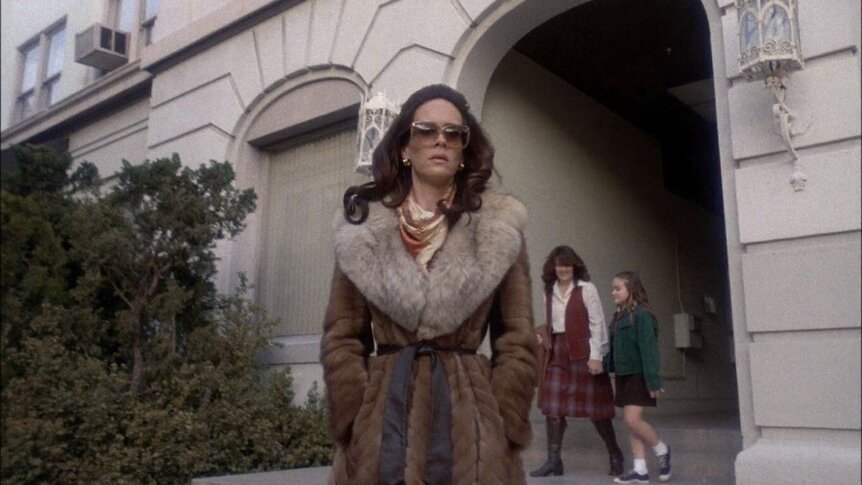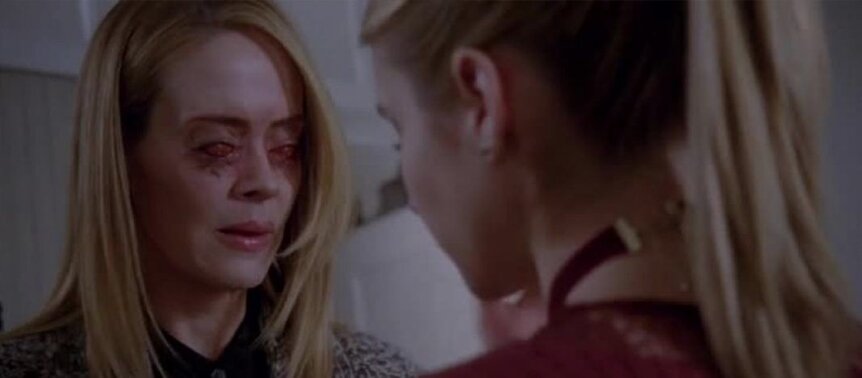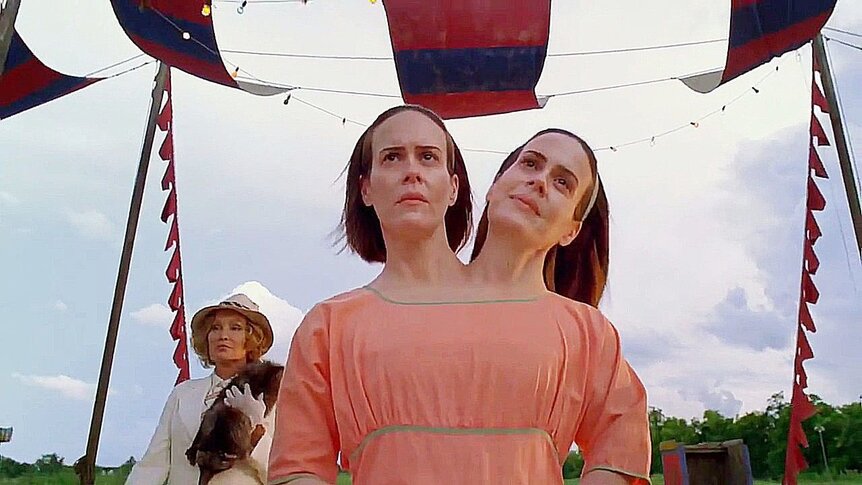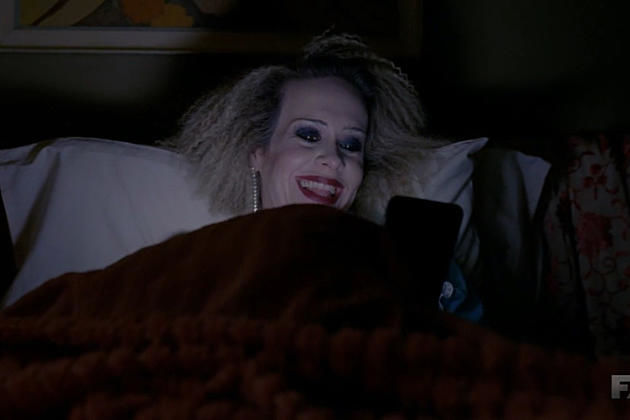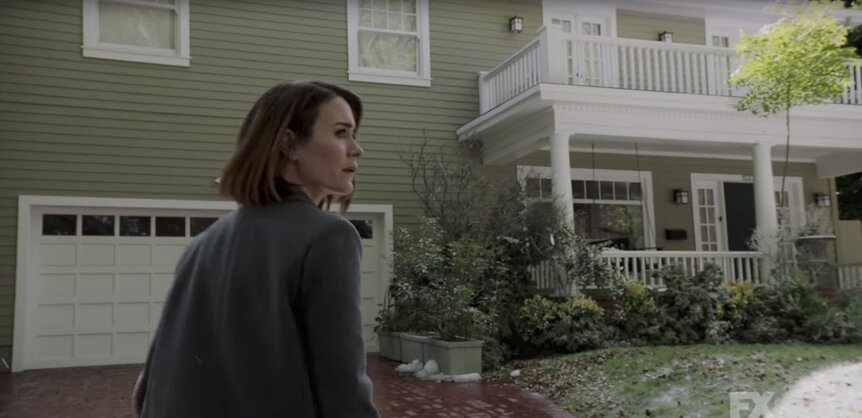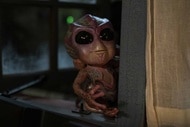Create a free profile to get unlimited access to exclusive videos, sweepstakes, and more!
Sarah Paulson's six greatest AHS moments
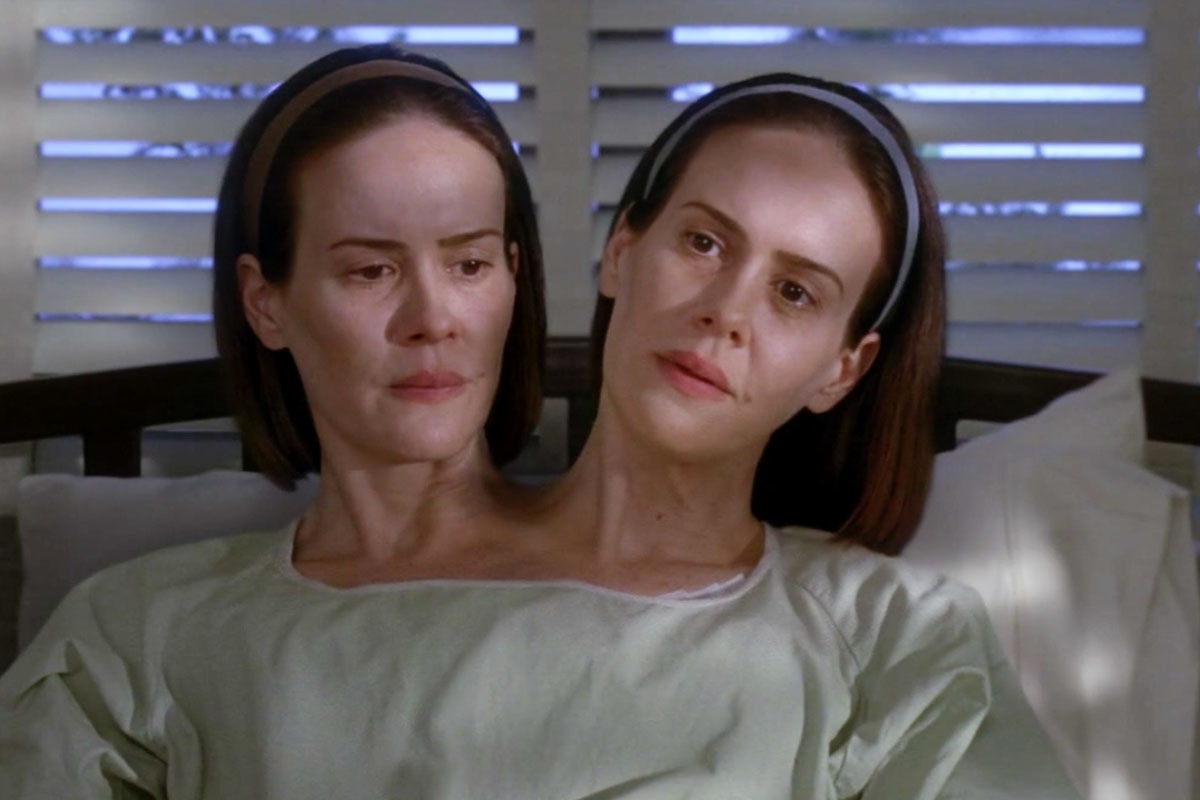
Fans of FX’s American Horror Story were no doubt semi-disappointed earlier this year when the announcement was made that a few of the actors who have become synonymous with the series are sitting this round out.
One of those names is the great Sarah Paulson, who has a resume about a mile long and the chops to match. Perhaps best known for her work on this series, at least in the eyes of a lot of horror fans, Paulson has been one of the standouts on a show in which just about every actor is giving the very best of their range. Since she's sitting out this one season due to scheduling conflicts, that only led SYFY WIRE FANGRRLS to consider her truly across-the-board work on the previous seasons.
Though there are many brilliant actors on this show, and though every scene with Sarah Paulson is well worth your time, these are some of the moments where her acting, the script, and the characters she has played on the show all came together to remind us exactly what it is we love about this series (and Paulson herself).
Trigger Warning: There are both spoilers of past seasons and discussion of the highly upsetting subject matter that often appears therein throughout this article.
01. Piggy Piggy (Murder House)
Though each season of AHS is different from the others, this first season was where the show established a lot of the mainstays, themes, and tropes that would recur throughout the series. Revolving around a haunted house and the people, both living and dead, that made their home there, Murder House dropped in a lot of the actors that we’re still seeing today.
That also goes for our girl Sarah Paulson. In her appearance as the TV psychic Billie Dean Howard, we see our very first glimpse of one of the actors that would come to define much of the series. Lighting up cigarettes in Jessica Lange’s kitchen and telling her what’s what, Billie Dean might not have a ton of screen time in this episode, but every beat counts as she throws out extremely professional psychic witticisms, such as “The dead can hold a grudge better than most Scorpios.”
Many of Paulson’s parts are recurring, and Howard pops up occasionally in later seasons. Mediums always add a lot of spice to horror films, and Paulson’s confident celebrity mannerisms in contrast to the bonkers things happening around her make Billie Dean one of her best characters.
02. Madness Ends (Asylum)
While Murder House was by no means light fare, the second season, Asylum, is where we really saw the no-holds-barred horror of the series fully unleashed. Taking a page from many an urban legend, along with a healthy dose of real-world atrocity themed around the genuinely terrifying treatment of people with disabilities in many an underfunded state hospital (back when we actually had those), Asylum is one of the seasons of AHS most rooted in historical events. Many scenes call back to Geraldo Rivera's filming at Willowbrook, which is now famous for being the piece of investigative journalism that made him a celebrity as well as haunting our collective imagination due to the mistreatment of disabled people on its premises.
Paulson plays the journalist Lana Winters at varying stages of her life. We see her in her optimistic, ambitious early career, living with her girlfriend and taking risks like a particularly ill-fated Lois Lane. Winters attempts early on to investigate Briarcliff, a corrupt, church-run institution, only to become an unwilling “patient” of the same people she was attempting to investigate. Betrayed by her lover, who signs paperwork stating that she is a lesbian in order to see her hospitalized (again, a thing that actually happened to many queer people in the ‘60s), Lana’s character arc shows her escaping the state hospital only to return to finally take them down. As she strides back into her own personal Hell, with a camera crew in tow this time, she says, “I want to put America in the asylum.”
Lana is fascinating, and she, like Billie Dean, would be semi-recurring in the franchise. The amount of social commentary AHS manages to pack into a single character is impressive. Not only do we see the pressures and the eventual wear put on a woman whose life was dictated by her career in a time when women were expected to conform to a rigid notion of femininity, we see a callback to some of the most unsettling crimes committed against the disabled in the last 50 years by a complacent society. While many queer characters are incorporated into various shows today, very seldom do we see a reflection on how queerness dictates a person’s life or the state-sanctioned horrors that were perpetrated against queer people in the US as recently as the ‘60s and ‘70s. Somehow combining all these elements alongside commentary on the long-lasting and painful effects of sexual assault and rape, Lana Winters is truly a character who has been beyond and back.
03. Go To Hell (Coven)
The Coven arc of AHS revolved around the women comprising an ancient group of witches as they attempt to navigate modern-day New Orleans alongside their many longstanding traumas and grudges, both at the hands of the outside world and, occasionally, one another. Legacy is the central theme — not just for the season, but for each of the characters.
Though Paulson’s character Cordelia Goode was seldom the primary focus of the third season of AHS, she was one of the primary players on a playbill of incredible actors playing fascinating characters. On a cast that featured Jessica Lange, Angela Bassett, Emma Roberts, Kathy Bates, and more, Paulson’s turn as Cordelia still offered many of the most cathartic moments of the season as she struggled with her mother’s legacy and the history she was born into.
Cordelia often displayed a personality that teetered between unending compassion, being protective of those who depended on her in the extreme, and genuine, sometimes surprising moments of cruelty and hostility. Having been blinded by acid as a child, her embrace of pain as a means to an end was a major theme throughout the season. Though this episode was lightly criticized for being absolutely all over the place, this is likewise where we see Cordelia begin to step up as the new Supreme after spending much of the season as the rebellious adult child of the previous Supreme, complicated matriarch Fiona Goode. Despite having been repeatedly blinded and at the whim of forces beyond her control for much of her life, Cordelia evolves into a badass in the final episodes of the season. “When the rest of the world sees a wall, we see a window,” she quips in the face of her own not-insignificant, sometimes self-inflicted trauma.
04. Monsters Among Us (Freak Show)
The culture around freak-shows definitely says some pretty uncomfortable stuff about how morbid humanity is and how willing to fetishize physical variation we have tended to be throughout much of our collective history. While this can be pretty upsetting stuff to consider in an existential sense, AHS again used real-world tragedies of the past and horror tropes to create a match made in television Heaven — or Hell. Pushing Sarah Paulson to the forefront once more as the conjoined twins Bette and Dot Tattler, Freak Show remains one of her most memorable turns in the series as she played two dissimilar sisters cursed to share a body.
This entire season is a great spotlight on the acting abilities of Paulson, whose scenes took more than double the average time to shoot, and required her to constantly flip between two very different personalities. Comprised of Dot, a woman yearning for privacy and solitude that could never be hers, and Bette, dreaming for the talent of her sister while resenting her for her repressed demeanor, the sisters were easily one of the most bizarre, intriguing, and tragic concepts put forward on a show that has no shortage of such themes.
Though the entire season is full of great Dot and Bette moments, their bizarre first appearance, the death of their mother, and the way they are essentially forced into a life in the freakshow remain perhaps the best opening to any season of AHS.
05. Be Our Guest (Hotel)
Of all the characters Paulson played on AHS, perhaps none were so difficult to love as Sally McKenna, who was loosely based on the widely accepted public perception of Nancy Spungen as a somewhat demonic presence in the late ‘70s music scene. Teetering between the addiction sheik of the time period and some sparse commentary on hedonism, McKenna is a character that was fun to watch while remaining, at times, frustratingly low on self-motivated character beats.
Perhaps that is why "Be Our Guest" was such a breakthrough moment for a character who had been characterized so prominently as an unrepentant hedonist. Encountering fellow Hotel mainstay Iris, McKenna is given a cellphone and encouraged to create a social media presence. This one-act gives her a new life (so to speak), and a character who was defined by her inability to care about anything created a network of followers that gave her joy, entertainment, and even a sense of belonging. Though this might have been one of the more surprising twists the season took, it was actually pretty comforting to see McKenna get a little peace. Also appearing in this episode is our favorite psychic, one Billie Dean Howard, who doesn’t fare quite as well as McKenna.
06. Neighbors From Hell (Cult)
The Cult season of AHS was utterly off-the-wall and full of some fairly surprising social commentary, standing out even in a series that often capitalizes on such themes. In fact, this episode might be one of the best of the entire series. Utilizing the classic sitcom set-up of “the neighbors from Hell” to slowly descent into unbridled terror is particularly effective. The way in which social criticism from ill-intentioned people can be weaponized to encourage harassment against private citizens comes to the forefront, and the liberal fear of being misunderstood becomes the key element behind the episode.
Ally Mayfair-Richards is helpless as her relationships deteriorate, her girlfriend leaves her, her neighbors escalate in aggression, and the people that stand by her are obvious manipulators. For a lot of us, what happens to Ally is the stuff of nightmares, but the people around her sincerely believe that they are acting for just reasons. The way hearsay and slander can be used for nefarious gain via social media presents a very effective modern nightmare. Though this might not be in reality how social media truly works most of the time, it does express a lot of our cultural fear around it. Meanwhile, Paulson, in her role as a woman rapidly losing everything that matters in her life, pulls off yet another roundhouse kick of a performance.

